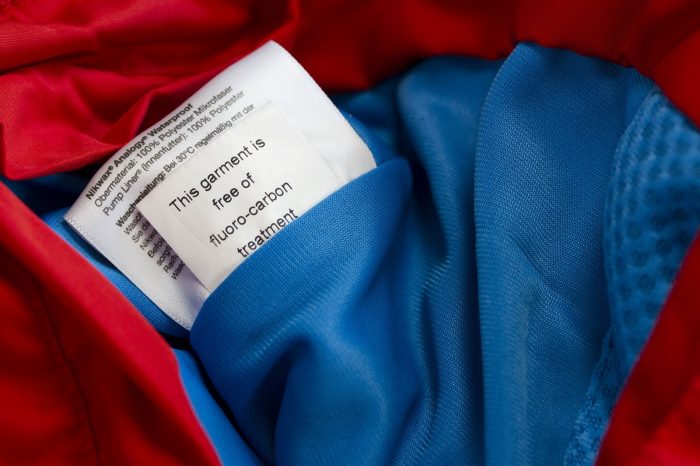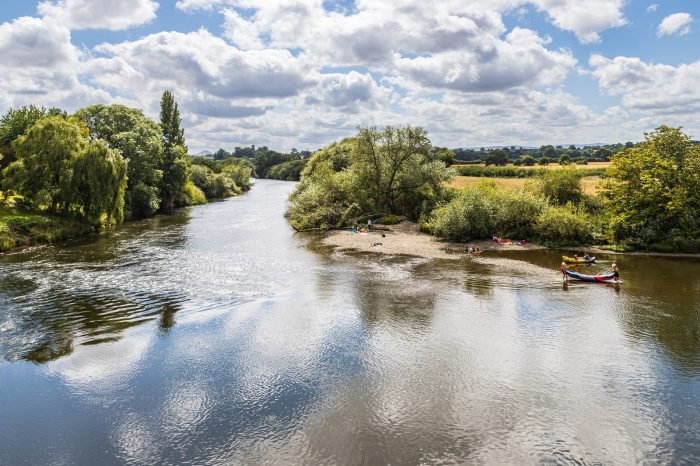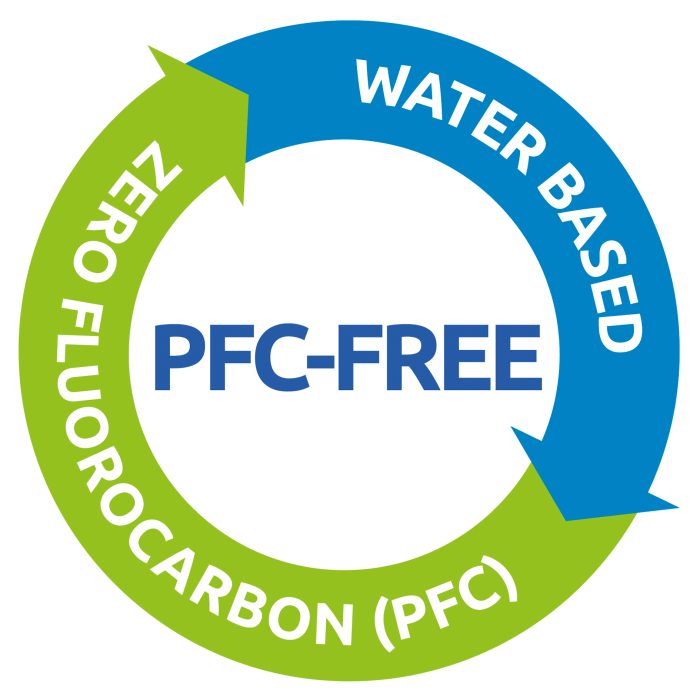Introduction to PFCs

Nikwax is committed to maximising enjoyment of the great outdoors with minimal environmental impact, which is why we have never used harmful chemicals in our water-based products. Since we were founded by Nick Brown in 1977, we have always championed a culture of transparency and public scrutiny around PFCs – long before they were on the world’s safety radar. In this month’s blog we delve into what these toxic fluorocarbons are, and why we should all be concerned with them.
What are PFCs?
PFCs is the name given to the broad family of products called perfluorinated compounds: man-made substances containing linked carbon and fluorine atoms (they are also called PFAS, which stands for polyfluoroalkyl substances). The chemical bond between carbon and fluorine is one of the strongest in organic chemistry, making it very attractive for use within different industries. PFCs can appear in all sorts of products – from carpets and clothing, to food packaging and personal care products, and firefighting foams. They are excellent at repelling oils and water and have been used extensively on non-stick pans for example, and on outdoor apparel as a durable water repellent coating.
Why are PFCs so problematic?
Despite their many useful applications, it is precisely their (chemical) repelling properties that make PFCs so hazardous. The strong bond between carbon and fluorine is persistent and can take thousands of years to break down – if it even breaks down at all. As a result, PFCs are often nicknamed ‘forever chemicals’. These forever chemicals are demonstrably harmful to the environment and our own health, which is why Nikwax, as an outdoor brand, has never included them in our cleaning and waterproofing products.
Literally thousands of substances fall under the PFC banner, leaking into the environment via industry air emissions and wastewater discharge, as well as via treated home goods that enter landfill. Some PFCs can also travel easily through soil and water, increasing the risk of groundwater contamination. As they take so long to break down, over time the amount of PFCs in the environment will increase and bioaccumulate (build up) in crops and livestock, which means humans are also at risk of ingesting them. In the UK, the Environment Agency* has found extensive evidence of PFCs in groundwaters, rivers and coastal waters, which has led to widespread contamination of our freshwater and marine life. Early evidence even suggests it can damage the human immune system and impact fertility and you can learn more about this by taking a look at the PFC page on our website here.
 © Rijk van de Kaa, Unsplash
© Rijk van de Kaa, Unsplash
How is Nikwax helping to make a difference?
Quite clearly, we all need to be mindful of the choices we make. Over 45 years ago, we chose to prioritise clean chemistry over quick-win PFCs, ensuring our aftercare products are always safe for use in the home, and are always safe for the environment:
· They are PFC-free
· They are water-based and degrade into harmless compounds
· They do not use aerosol propellants, which contain Greenhouses gases
Since 1977 we have been world leaders in the provision of high performance yet low impact cleaning and waterproofing products for outdoor gear, and we are committed to their safety for many more years to come.
*Source; EA report: Poly- and perfluoroalkyl substances (PFAS): sources, pathways and environmental data Chief Scientist’s Group report August 2021 chrome-extension://efaidnbmnnnibpcajpcglclefindmkaj/https://assets.publishing.service.gov.uk/government/uploads/system/uploads/attachment_data/file/1012230/Poly-_and_perfluoroalkyl_substances_-sources_pathways_and_environmental_data_-_report.pdf



Leave a Reply